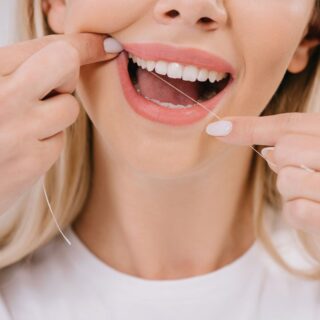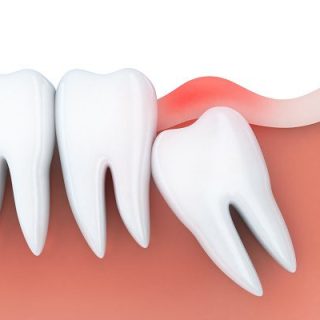Thumb sucking habit is a natural reflex for babies and young children; it gives them comfort and makes them feel safe. Most often, this habit just goes away on its own as they get a bit older. However, if it continues for too long, it can cause problems with their teeth, jaw growth, and even speech. That’s why it’s important for parents to keep close attention and seek advice from a professional if the habit persists.
In this blog, we’ll explore why children develop this habit, when it becomes a concern, the effects of prolonged finger sucking, and the most effective ways to help your child break it.
Reasons for thumb and finger sucking in children
Children may suck their thumbs or fingers for several natural and emotional reasons, including:
- Comfort and self-soothing: Sucking has a relaxing effect that makes kids feel safe when they’re stressed.
- Breastfeeding substitute: When breastfeeding is limited or not continued for long, some children turn to thumb sucking as a replacement for the comfort and security it provides.
- Sleep aid: Finger sucking is a common way for kids to relax and fall asleep.
- Habitual behavior: Over time, the reflex becomes a routine, and children continue even when comfort isn’t needed.
- Coping with change: Starting daycare, meeting new people, or adjusting to unfamiliar situations may trigger the habit as a way to manage anxiety.
When does finer sucking become a problem?
Thumb and finger sucking is completely natural for infants and toddlers, and, in most cases, kids will naturally quit this behavior by ages 3 or 4. However, sucking behavior that continues past this age can start to disrupt oral development. Once kids develop permanent teeth ( generally around age 6), bad sucking habits can even change the shape of the roof of the mouth and cause misalignment of teeth.
The effect also varies, based on how often, how long and how strong the sucking habit is. While some experts suggest addressing the habit prior to age 3, the American Academy of Pediatrics notes that treatment would typically only be necessary if sucking habit persists after the age of 5. Professional pediatric dental consultation is therefore strongly recommended at this stage to prevent long-term dental issues.
Effects of prolonged thumb sucking habit
- Changes in jaw growth: The continuous pressure may cause the palate’s shape to change and the upper jaw to narrow.
- Misaligned bite (malocclusion): Such as an open bite, where the front teeth don’t meet, or an overbite caused by the upper teeth pushing forward.
- Protruding or gapped front teeth: The thumb often forces the upper teeth outward, creating noticeable spacing.
- Skin irritation on the thumb or finger: Continuous sucking can cause redness, calluses, or even small sores.
- Increased risk of infections: Kids who suck their fingers are more likely to get infections because fingers have germs, and sucking brings those germs into the mouth.
- Speech difficulties: Misaligned teeth and changes in the mouth’s structure can make certain sounds harder to pronounce, sometimes leading to a lisp.
If thumb sucking has already affected your child’s teeth alignment, orthodontic care such as braces may be needed later. Learn more about our dental braces price to explore the options available.
Practical at-home ways to stop thumb sucking
- Positive Reinforcement: Offer praise when they are not sucking their thumb, and consider small rewards such as stickers or added play time.
- Identify Triggers: Notice when your child tends to suck their thumb and offer comfort alternatives, such as a favorite toy or blanket.
- Create Distractions: Engage young hands with creative pursuits like building blocks, drawing, or soft toy play.
- Gentle Reminders: A simple, kind reminder can help them recognise the behaviour, without making your child feel guilty,
- Bedtime Strategies: To lessen unconscious sucking during sleeping, try putting a glove on the thumb or covering it with a gentle bandage.
Professional dental solutions to stop thumb sucking
When your child’s thumb-sucking habit doesn’t stop with simple at-home methods, pediatric dentistry can offer some gentle and effective solutions, all personalized for your little one. Pediatric dentists are specially trained to understand children’s oral habits and provide both guidance and treatment options.
- Early Evaluation: A pediatric dentist can assess whether thumb sucking is already affecting the teeth or jaw and recommend the best timing for intervention.
- Orthodontic Appliances: To make sucking less comfortable, a tiny device may occasionally be placed into the mouth.
- Monitoring Growth and Development: Regular dental visits allow the dentist to track improvements, ensure proper alignment, and step in early if correction is needed.
El-Shenawy dental centers: expert pediatric dental care
At El-Shenawy Dental Centers, we know how common the thumb sucking habit is in children, and how important it is to address it early. Our pediatric dentists do their best to make the dental visit as comfortable and enjoyable as possible so that each child feels secure, relaxed, and cared for.
What sets us apart is our combination of expertise and child-centered care. We use state-of-the-art dental technology within a welcoming atmosphere that reduces a child’s fear. Our specialists are highly experienced in managing pediatric oral habits, monitoring jaw and tooth development, and providing preventive care that protects young smiles for the future.
Book your child’s pediatric dental visit at El-Shenawy today.
Frequently asked questions
Is thumb & finger sucking normal for babies and toddlers?
Yes,it’s a completely natural reflex that brings comfort and a sense of security to babies and young children.
How long does thumb sucking usually last?
The vast majority of children stop on their own between the ages of 2-4.
Most children tend to stop doing this on their own between the ages of 2 and 4.
Does a pacifier have the same effect as a thumb or finger sucking habit?
Yes, prolonged use of a pacifier can have similar dental problems, bite issues, or misalignment of teeth if they continue beyond early childhood.



















